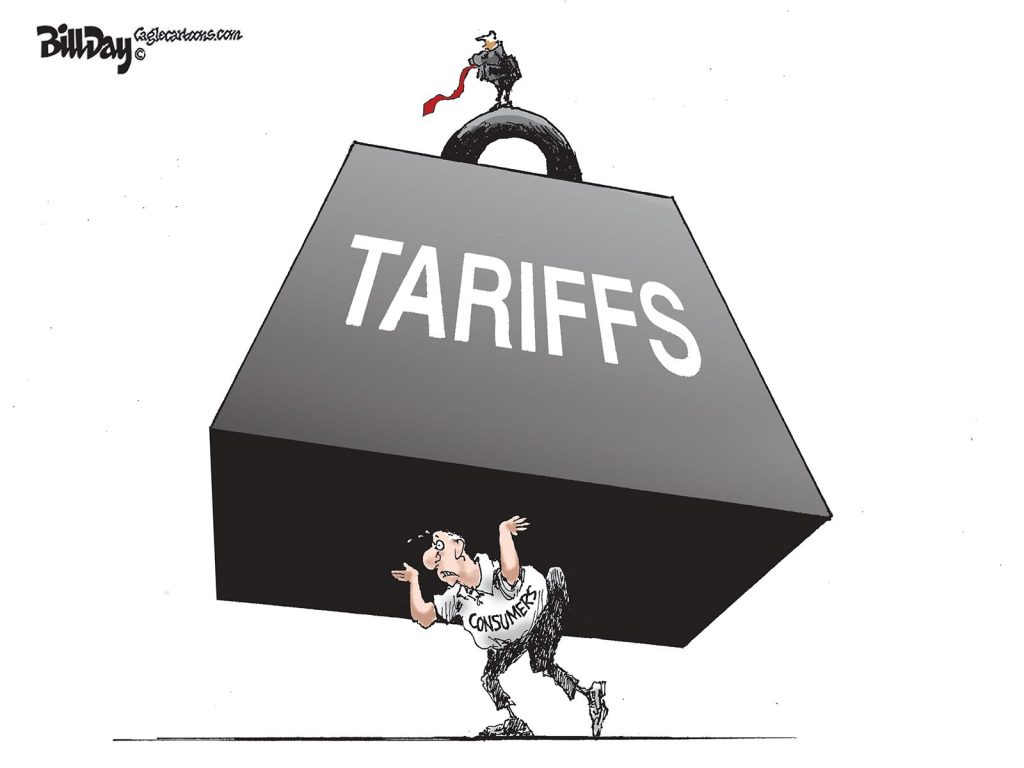Memphians aren’t really asking all that much.
They aren’t looking to their mayor to paint grand visions or even act as a source of civic inspiration. These days, we’d be glad to settle for just getting the basics right.
Instead, the Memphis mayor says that mayors can’t do anything about crime.
He says the poor will always be with us.
He isn’t saying anything about the upcoming hiring of a new city schools superintendent.
He didn’t say anything as new ethics rules were written for city government.
In fact, if anything characterizes his reelection campaign, it’s what he’s unwilling to talk about.
Blighted Campaigns
That’s why it was surprising to see his kick-off of an anti-blight campaign. After all, if there’s a blight problem, it clearly happened on his watch. The plan of action was the inevitable public-private partnership, but also included an anti-blight manual whose practical strategies would have been well-served by implementation years ago.
Even the so-called “Anti-Blight Coalition” hints at an operating premise that city government resists being in charge or responsible for anything. These days, it would be refreshing to hear an affirmative sentence from the mayor asserting the ability of city government to make Memphis better, safer and healthier.
But we don’t intend to demean the anti-blight program, because after all, something is better than nothing. There’s little question that it is desperately needed, because it’s hard to remember when Memphis neighborhoods and streets had more trash on them.
Unkempt
Downtown in particular is as unsightly as we can remember it, despite the fact that most cities would be working hard to roll out their best welcome mat to the tens of thousands of Elvis pilgrims fans. During their stay, paper blew down Main Street, and every imaginable kind of trash – soiled diapers, dozens of soft drink cans and empty bags, newspapers and broken bottles – was evident on the most well-traveled routes. Most were there when Elvis Week began and many remain there still.
Memphis has fallen a long way since the days when it boasted of its string of “Cleanest Cities” awards. Today, in a ranking of the 50 largest U.S. cities, our city now ranks 32nd.
As for sanitation, Memphis is #46. In other categories, Memphis ranked 22nd in air quality, 12th in water, 24th in toxics and 29th in hazardous waste.
Starting at fourth from the bottom, the anti-blight coalition faces some tough challenges, but we’re glad that something’s supposed to be done, because even visitors are starting to comment on the sad state of our cleanliness.
Touring Downtown
Recently, several people from a metro area similar to ours stopped by for a visit as they research work on creative workers. It was an embarrassing time to tour downtown with them.
We met them at the Madison Hotel. As we walked out the front door, the panhandler sleeping in the alley across the street was a prominent feature. After turning on Main Street and walking a couple of blocks, we were asked: “Is downtown always this dirty?” We changed the subject to avoid an honest answer.
After dinner, we walked back to our office, past the panhandler sleeping in the alley east of The Butcher Shop, the fragrance emanating from the panhandler living in the alley behind our office, and finally, turning on Union Avenue, we were greeted by a panhandler sleeping on the grate near our front door.
Eventually, we walked them back to their hotel, weary from the realities of downtown Memphis these days, but thankful for downtowner Paul Ryburn’s continuing online discussion about the crisis proportions of panhandling (not to be confused with homelessness).
A Criminal Suggestion
As for the mayor’s suggestion that mayors can’t do anything about crime, there so much evidence to the contrary that it’s not worth repeating it all. As for the mayor’s comment about the ubiquitous poor, it’s particularly disturbing for him to use a frequently misinterpreted Bible verse to justify his own lack of action on the problems that plague almost 30 percent of our citizens in a year. Like so many others, he translates “the poor you will always have with you” as a justification for doing nothing.
And that’s precisely the opposite of what the verse means. More to the point, it challenges each of us to practice our faith in a way that brings us into proximity with the poor. It’s also worth remembering that this comment by Jesus was made while he was in the house of a leper, the outcasts of that time.
With the comment, He was saying to his disciples that they would always have the poor with them precisely because they were His disciples. After all, he asked, who do we spend our time with? Lepers, the poor, the discarded and the outcast.
There are several thousand references to the poor in the Bible, elaborating on a theme of help for the poor, making it even more discouraging that the mayor would cling to a fragment of one verse as an excuse for city government’s inattention to the problems of poverty.
Poverty Of Answers
City government ignores the problems of poverty at its own peril. When Memphis’ poverty rate is compared to Chattanooga, Nashville, Knoxville, Birmingham, Jacksonville, Orlando, Indianapolis, Louisville, Charlotte, Raleigh, Columbus OH and Austin, we lead them all in the percentage of our population living in poverty in a 12-month period – 28.1 percent.
In fact, Memphis’ percentage was about 50 percent larger than the other cities.
Using the same group of cities, Memphis was #1 (with a bullet) in the percentage of households receiving food stamps in the past 12 months – 13.9 percent.
In other words, Mr. Mayor, even if you believe that the poor will always be with us, is that any reason to believe that it is Biblically ordained that Memphis should have more poverty than its peer cities?


